HEIDI BJERKAN
An important figure in the Norwegian culinary scene, this chef defends an innovative restaurant business model of circular economy. In her restaurant Credo, she has built an ecosystem that integrates the farmers in Trondheim and all her team into good practices of waste management and organic food.
In 2017, this former chef of the Norwegian royal family launched Vippa, a social accelerator which provides training and work opportunities for refugees and immigrants. Bjerkan converted an old fish warehouse in the port of Oslo into a bustling street food market. In their stalls, Vippa participants cook and serve their dishes to an essentially young public that comes to enjoy an experience of multicultural diversity.
https://www.basqueculinaryworldprize.com/https://www.finedininglovers.com/blog/news-trends/basque-culinary-world-prize-2018-finalists/
Adresseavisen
Nominated:
EBRU BAYBARA DEMIR
In Turkey, the country that has taken in more Syrian refugees than any other (more than 3.5 million people), this indefatigable chef uses gastronomy as a tool for integration. Through her initiatives, Baybara Demir empowers women of both countries and dismantles prejudices, enhancing the richness of the cultural exchange. Her latest project, “From Soil to Plate”, is being carried out in the border province of Mardin, where she aims to revitalise the battered agricultural system to create a base to combat the high female unemployment and protect traditional farming techniques. Until last year she was one of the principle educators in the “Harran Gastronomy Project”, a UNHCR project in which 160 people, mainly Syrian and Turkish women, were trained and 108 were hired to cook in refugee camps and other facilities.
VIRGILIO MARTINEZ
More than to his restaurants, the work of Virgilio Martínez is related to a way of understanding and living gastronomy in which innovation, research and development are linked to ecosystems and ancestral knowledge as a common theme.
Together with his sister Malena, in Mater Iniciativa, the chef of the renowned Central restaurant leads an interdisciplinary team that is building a documentation, exchange and experimentation platform with which it also promotes a particular vision of issues such as biodiversity (both environmental and social). With MIL, a new restaurant at an altitude of over 3,500 metres facing the Inca ruins of Moray, he consolidates an inspiring model of catering and interaction with local communities, promoting sustainable agricultural practices, knowledge exchange and the creation of multicultural dialogues.
In addition, Virgilio is committed to strengthening ties among Latin American countries, promoting opportunities for the new talent to meet.
A member of the revolutionary kitchen team of elBulli for almost two decades, Puig-Pey decided one day to put his creativity at the service of science and health. Responsible for the Cooking Area of the Fundació Alícia in Barcelona, the chef studies and creates food solutions so that children and adults with dietary restrictions can eat food that is as healthy and as tasty as possible. His leadership has been fundamental to the success of projects that have improved the daily lives of people that normally are resigned to unappetizing diets. He has designed recipes for patients who can only eat modified textures and has been involved in the production of educational resources for kids. More recently, Puig-Pey has worked with interdisciplinary teams in the study of alimentary solutions for people undergoing treatment for cancer, building diets accordingly to the type of cancer. These guides are free and available to the entire population online.
Karissa Becerra is a chef, writer and designer but, above all, she is an activist who seeks to transform the relationship we build with food from childhood. Trained in philosophy and anthropology, Becerra teaches children and adults to think while learning how to eat consciously, convinced this is where big changes start. Her most ambitious project is “La Revolución” (The Revolution), a non-profit association which actively trains and educates people since 2015, aiming to generate an emotional connection between people and food. With the funds raised by these workshops – in which thousands of children, parents and educators have participated – Becerra is taking food education to public schools of Perú, while pressing for its inclusion in the curriculum of Peruvian public education..
This Scottish chef is undertaking the task of preserving the memory of native peoples of Australia through their food. He has dedicated the last 17 years to discovering and defending this aborigine culture, excluded from the national culinary identity. During this time, he has visited hundreds of remote communities and documented the gastronomic riches that its inhabitants have shared with him, researching and experimenting in his Orana restaurant, and using his media influence and international voice to show the potential that this culinary knowledge offers. With the philosophy of “giving back more than you receive”, in 2016 Zonfrillo launched the Orana Foundation, whose objectives range from supporting indigenous communities in the production and fair marketing of their products to the documentation of more than 10,000 native ingredients and the investigation of new uses.
Born in the Democratic Republic of Congo and raised in Germany from the age of 13, this young chef took advantage of the fame he achieved through participating in Top Chef (France) to showcase and support African gastronomic talent. With his Chefs in Africa platform, founded in 2016, Malonga advises chefs and apprentices and puts them in contact with companies, academies, hotels and restaurants that might recruit them or offer grants. Its objective is to offer an opportunity to all young people with a vocation for cooking, like he was himself, so that they can overcome the barriers they currently face, such as lack of training, employment and discrimination. More than 4,000 chefs from African countries or in the diaspora have joined this network. Institutions such as the World Tourism Organisation and UNESCO support its work.
Zigas is the executive director of La Cocina, a social incubator that for more than a decade has been allowing the transformation of people with low-incomes – mostly immigrant and African-American women – into owners of their own business in San Francisco. With a five-year training and follow-up programme, La Cocina has helped establish dozens of micro- businesses and provided support for around one hundred. His work promotes a more inclusive industry in a country where only 33% of restaurant owners and 21% of head chefs are women, and where immigration has become a more sensitive and divisive issue. La Cocina also helps young entrepreneurs in need of training and infrastructure by accelerating their projects, and promotes events such as San Francisco Street Food Festival. Graduate in Globalisation and Culture from the University of Michigan, Zigas worked in different positions in restaurants, from waiter to pastry chef. He learnt about microfinance by collaborating with ProMujer, a Bolivian social enterprise that empowers women and their families in Latin America.
Based on a scientific and innovative approach, Anthony Myint is demonstrating that restaurants can provide an example in the fight against climate change. A key figure in San Francisco’s gastronomic scene through Mission Chinese Food, this chef is co-founder of The Perennial Farming Initiative and Zero Footprint, a non-profit organisation that advises food businesses on how to minimise or even eliminate their carbon footprint, showing that instead of being part of this environmental problem, restaurants can be part of the solution. ZeroFoodprint assesses all the restaurant operations that generate greenhouse gases, including the type of ingredients used and their transport and handling, the use of energy and waste management, and based on the diagnosis proposes a plan with alternatives to improve their efficiency without economic losses. Teaching by example, in 2016 Myint opened The Perennial, a restaurant designed from the ground up to avoid having any environmental impact. In 2018, 178 restaurants around the world committed to this movement by offsetting their emissions on Earth Day.
MATTHEW ORLANDO
Between those chefs who embrace the fight against food waste, Orlando has developed a contemporary and innovative approach from a fine dining point of view. He demonstrates that making the most of ingredients and resources has more to do with changing paradigms and adopting circular logic than with “using things that have no value”. For this chef, everything that a product offers has potential and it is the job of the cook (not the ingredient) to reveal this. In his restaurant Amass in Copenhagen this American promotes an environment of healthy competition among his team to find new solutions and techniques, combining research and the tools that help him show how those ingredients (or part of ingredients) that we normally waste, could be even more nutritious and valuable than the parts that we normally use. The key, then, is knowledge. Amass uses almost exclusively organic products and has managed to reduce its waste by 75% in the last three years. Former right-hand man of Rene Redzepi, Orlando turns his restaurant into an educational resource, with workshops for urban children to learn how to grow, cook and eat vegetables.
MARC PUIG-PEY
A member of the revolutionary kitchen team of elBulli for almost two decades, Puig-Pey decided one day to put his creativity at the service of science and health. Responsible for the Cooking Area of the Fundació Alícia in Barcelona, the chef studies and creates food solutions so that children and adults with dietary restrictions can eat food that is as healthy and as tasty as possible. His leadership has been fundamental to the success of projects that have improved the daily lives of people that normally are resigned to unappetizing diets. He has designed recipes for patients who can only eat modified textures and has been involved in the production of educational resources for kids. More recently, Puig-Pey has worked with interdisciplinary teams in the study of alimentary solutions for people undergoing treatment for cancer, building diets accordingly to the type of cancer. These guides are free and available to the entire population online.
KARISSA BECERRA
Karissa Becerra is a chef, writer and designer but, above all, she is an activist who seeks to transform the relationship we build with food from childhood. Trained in philosophy and anthropology, Becerra teaches children and adults to think while learning how to eat consciously, convinced this is where big changes start. Her most ambitious project is “La Revolución” (The Revolution), a non-profit association which actively trains and educates people since 2015, aiming to generate an emotional connection between people and food. With the funds raised by these workshops – in which thousands of children, parents and educators have participated – Becerra is taking food education to public schools of Perú, while pressing for its inclusion in the curriculum of Peruvian public education..
JOCK ZONFRILLO
This Scottish chef is undertaking the task of preserving the memory of native peoples of Australia through their food. He has dedicated the last 17 years to discovering and defending this aborigine culture, excluded from the national culinary identity. During this time, he has visited hundreds of remote communities and documented the gastronomic riches that its inhabitants have shared with him, researching and experimenting in his Orana restaurant, and using his media influence and international voice to show the potential that this culinary knowledge offers. With the philosophy of “giving back more than you receive”, in 2016 Zonfrillo launched the Orana Foundation, whose objectives range from supporting indigenous communities in the production and fair marketing of their products to the documentation of more than 10,000 native ingredients and the investigation of new uses.
DIEUVEIL MALONGA
Born in the Democratic Republic of Congo and raised in Germany from the age of 13, this young chef took advantage of the fame he achieved through participating in Top Chef (France) to showcase and support African gastronomic talent. With his Chefs in Africa platform, founded in 2016, Malonga advises chefs and apprentices and puts them in contact with companies, academies, hotels and restaurants that might recruit them or offer grants. Its objective is to offer an opportunity to all young people with a vocation for cooking, like he was himself, so that they can overcome the barriers they currently face, such as lack of training, employment and discrimination. More than 4,000 chefs from African countries or in the diaspora have joined this network. Institutions such as the World Tourism Organisation and UNESCO support its work.
CALEB ZIGAS
Zigas is the executive director of La Cocina, a social incubator that for more than a decade has been allowing the transformation of people with low-incomes – mostly immigrant and African-American women – into owners of their own business in San Francisco. With a five-year training and follow-up programme, La Cocina has helped establish dozens of micro- businesses and provided support for around one hundred. His work promotes a more inclusive industry in a country where only 33% of restaurant owners and 21% of head chefs are women, and where immigration has become a more sensitive and divisive issue. La Cocina also helps young entrepreneurs in need of training and infrastructure by accelerating their projects, and promotes events such as San Francisco Street Food Festival. Graduate in Globalisation and Culture from the University of Michigan, Zigas worked in different positions in restaurants, from waiter to pastry chef. He learnt about microfinance by collaborating with ProMujer, a Bolivian social enterprise that empowers women and their families in Latin America.
ANTHONY MYINT
Based on a scientific and innovative approach, Anthony Myint is demonstrating that restaurants can provide an example in the fight against climate change. A key figure in San Francisco’s gastronomic scene through Mission Chinese Food, this chef is co-founder of The Perennial Farming Initiative and Zero Footprint, a non-profit organisation that advises food businesses on how to minimise or even eliminate their carbon footprint, showing that instead of being part of this environmental problem, restaurants can be part of the solution. ZeroFoodprint assesses all the restaurant operations that generate greenhouse gases, including the type of ingredients used and their transport and handling, the use of energy and waste management, and based on the diagnosis proposes a plan with alternatives to improve their efficiency without economic losses. Teaching by example, in 2016 Myint opened The Perennial, a restaurant designed from the ground up to avoid having any environmental impact. In 2018, 178 restaurants around the world committed to this movement by offsetting their emissions on Earth Day.
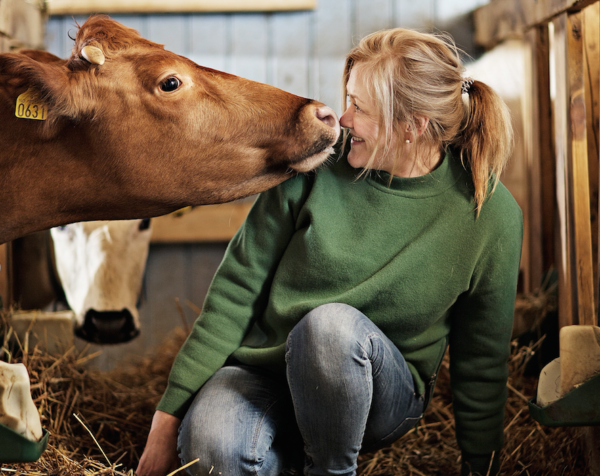
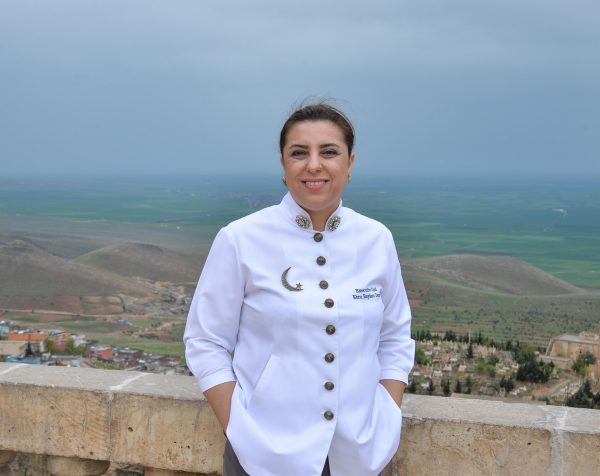

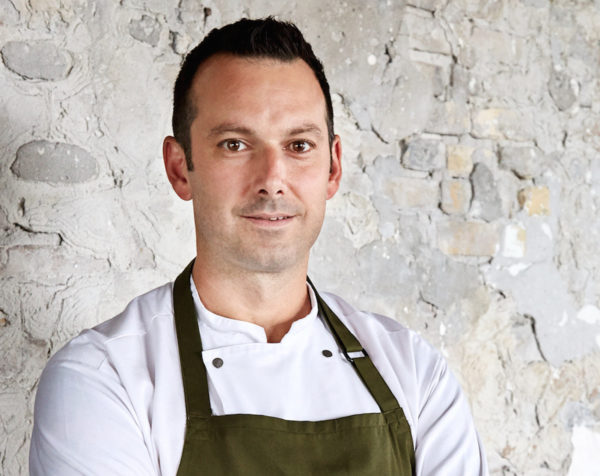
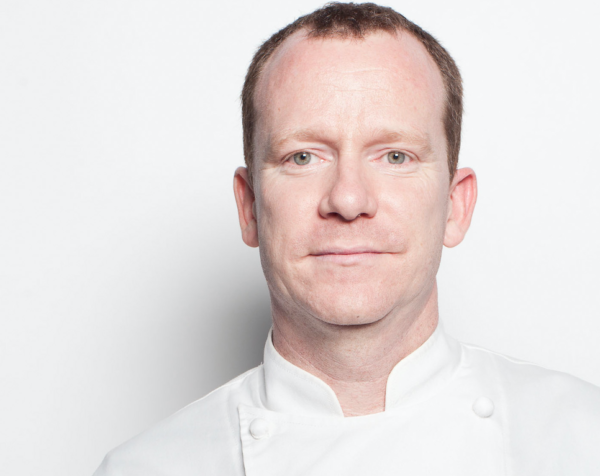
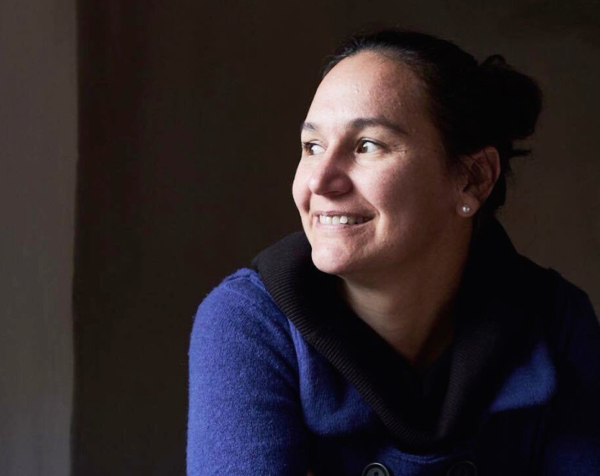
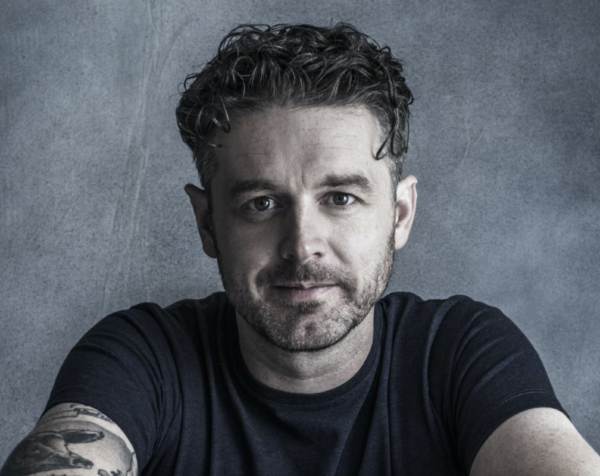


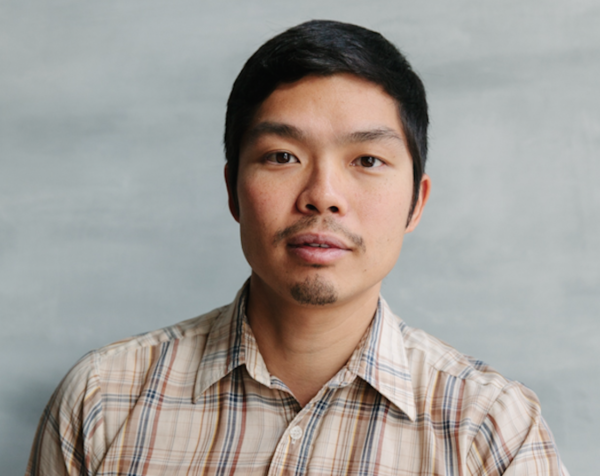

Ingen kommentarer:
Legg inn en kommentar